Let’s get it out of the way – Togashi Yoshihiro is a genius. And one whose audacity is pretty much limitless. I’ve made the comparison before, but reading/watching Hunter X Hunter sometimes puts me in mind of what Salieri (almost certainly apocryphally) says about Mozart in Amadeus: “It’s like he’s taking dictation from God”. Though I admit my confidence has wavered at times during “Dark Continent” (as many manga readers’ did during “Chimera Ant”), in the end it always seems like he’s following a plan that’s already finished in his head – he’s just committing it to the page bit by bit.
I’m still not fully sold on this arc, to be clear. I’m less engaged with it than any that preceded it, and I have concerns it’s simply too ponderous to accommodate the master’s physical limitations. But what Togashi has done in these last five chapters is to give “D.C” what it most badly needed – humanity. He’s reduced it to manageable proportions, and focused on characters we have emotional connections with (though still not any of the most prominent half-dozen in the massive cast). He’s done it by effectively writing a side-story, true (as he did with the Chrollo-Hisoka Heaven’s Arena mini-arc), which still leaves me concerned about the (really) big picture. But it’s been a remarkable run of chapters.
Togashi turning Chrollo into a full-on cinnamon roll is a total chad move, that’s for sure. Chibi-Chrollo is indeed “everybody’s little brother”, and while HxH had already made it pretty obvious that some of the Spiders were childhood friends, this expansion of that back story has been highly effective. Chrollo was a remarkable boy, no doubt – smart, resourceful, crazy talented (including as a seiyuu), fiercely protective of his friends. We knew Meteor City was the world’s dumpster; we knew the Phantom Troupe was considered heroic by its downtrodden residents. But now we more or less know how they got that way.
It must be said that none of this changes anything that’s already happened in the story. We know the Spiders have committed acts of unspeakable violence, killed almost certainly at least thousands of innocents (even if not for its own sake, it’s not like they avoided it). We know what they did to the Kurta – or at least we think we do, as we notably have only heard about those events second-hand. Chrollo may have what to him feel like very good reasons for choosing the path he chose for all of them, but that doesn’t mean it was right to live the way they do.
Those reasons largely involve Sarasa, part of of the proto-Spider gang despite a gap in social status. Child kidnapping and murder (and abduction into slavery) were common in Meteor City, but that doesn’t make what happened to Sarasa any less painful for Chrollo. What really seals the deal for him is that he blames himself for what happened, and even at eleven years old he can’t abide having failed Sarasa as he believes he did. The whole concept of his turning Meteor City into what it became as a lure for the criminals who murdered his friend is an interesting twist, even if the twist happened a bit too quickly perhaps.
Kurapika has not been present for any of these events (either in the current timeline or the past) but his presence is perpetually felt. The young Chrollo was quite transparently set up as an analog for the Kurapika from the Phantom Rouge prequel manga – even to the point of Sheila’s presence. Where I think Togashi-sensei is going with this is to blur the moral lines of what happened with the Kurta, which could hardly have seemed more black and white at first. He started the process way back in “York Shin” by showing how hard and desperate the need for revenge had made Kurapika, to the point where Gon was terrified for his well being. Now he’s going to the next step by, if not justifying, at least revealing why the Troupe became the people who did what they did.
As I said, there may still be more shoes to drop as those events come into clearer focus. At the very least Togashi has shown us just how profoundly what happened to Uvogin (him perhaps most of all the original Spiders) was a personal affront to Chrollo. What seemed incredibly audacious and hypocritical at the time – the Spiders’ outrage over losing a comrade when they murder without a second thought – at least makes sense now when seen through their eyes (though it’s still audacious and hypocritical).
The last piece of the puzzle is Hisoka, whose presence is – as always – the ultimate X factor. He has no grudge against the troupe because he doesn’t do grudges – all he cares about is the thrill of battle, and the way pissing off Chrollo gets him more of it. He is, in a sense, Kurpaika’s ally – despite their motives being utterly unconnected (which further casts a shadow on Kurapika’s moral standing). This is a fascinating, nuanced, tense situation as only Togashi can dream them up. What remains to be seen is how well he can tie it in with the enormous succession plotline, never mind the “Dark Continent” arc itself. But you doubt the man at your own risk.


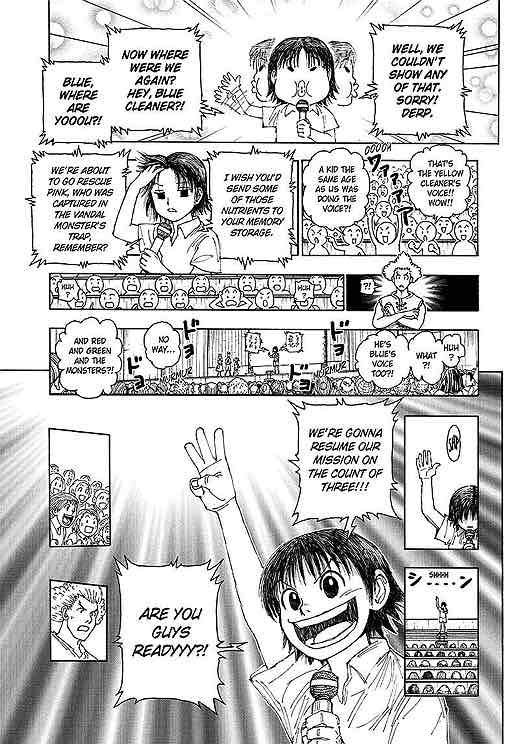
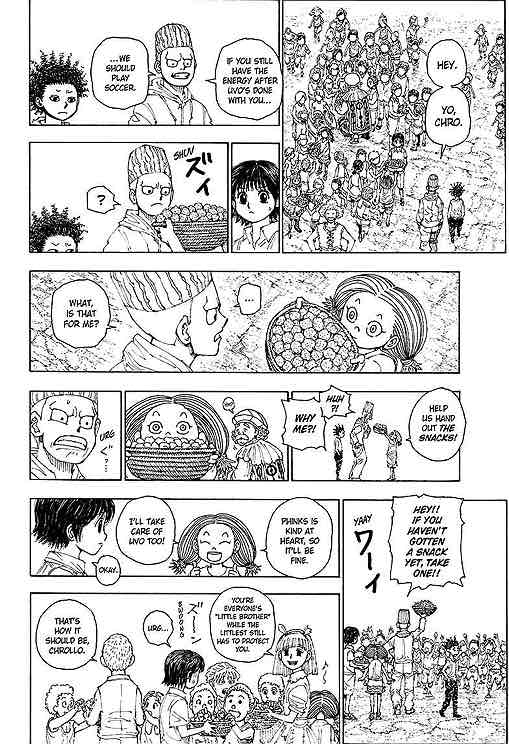
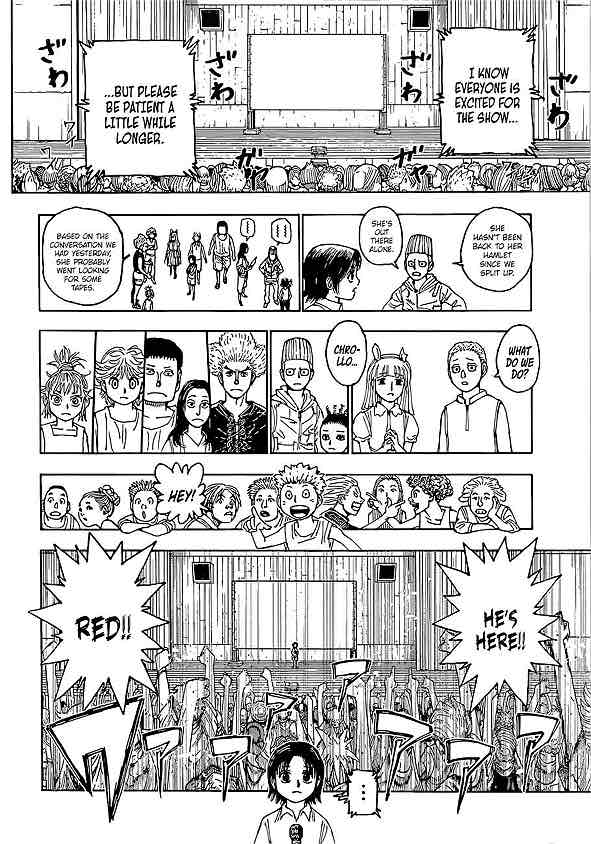
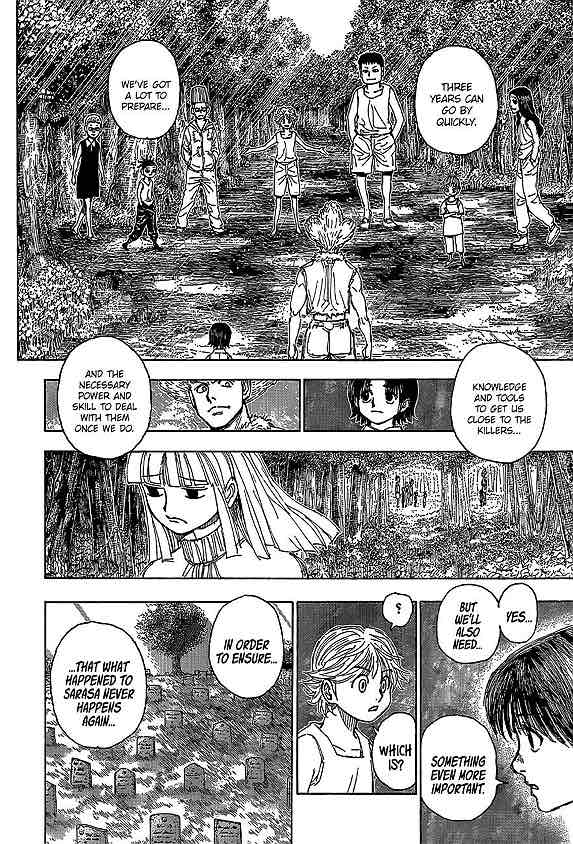
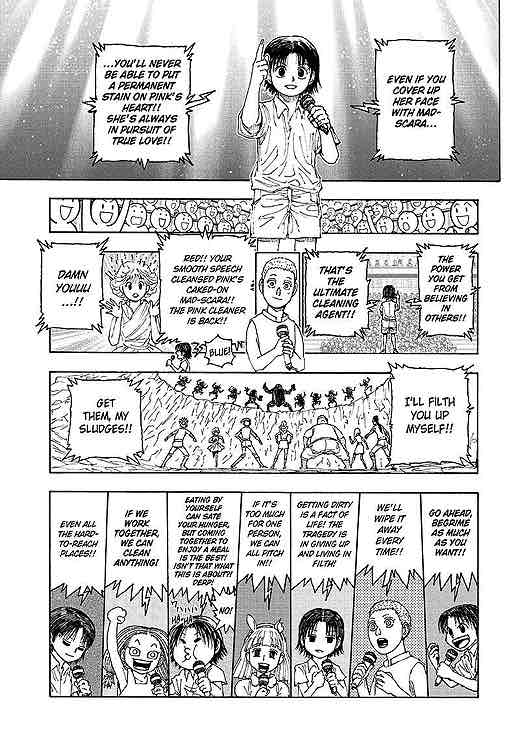
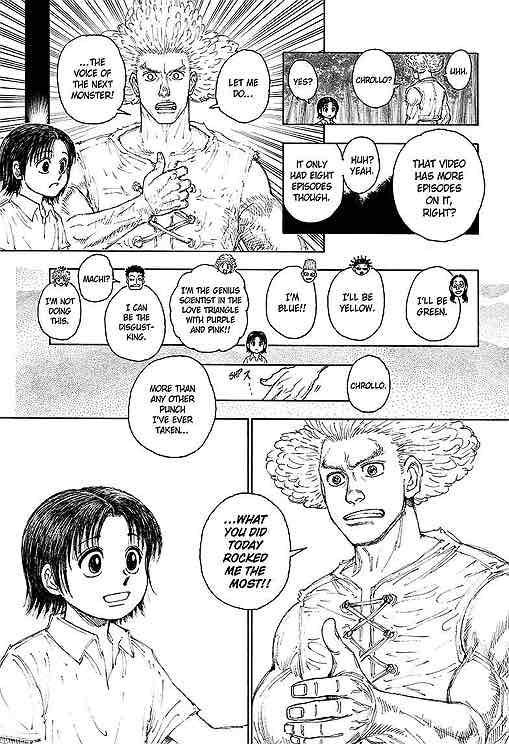
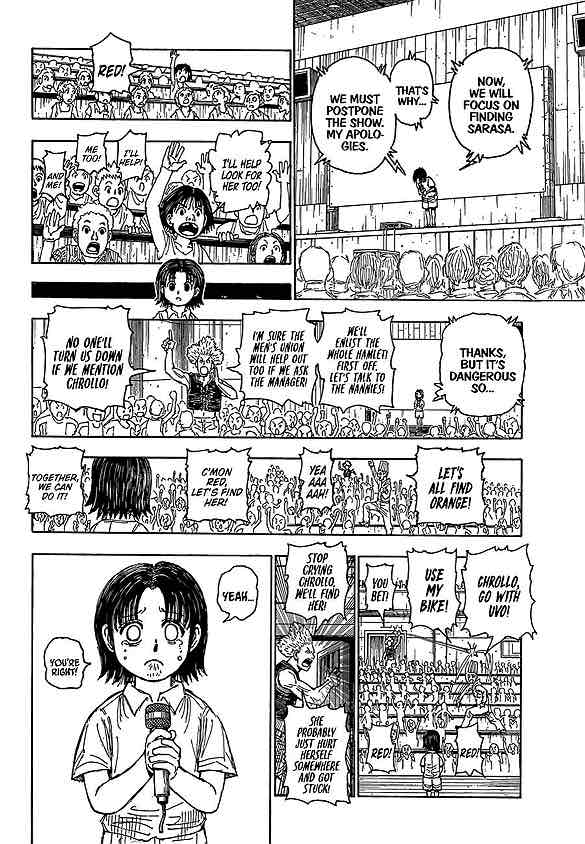
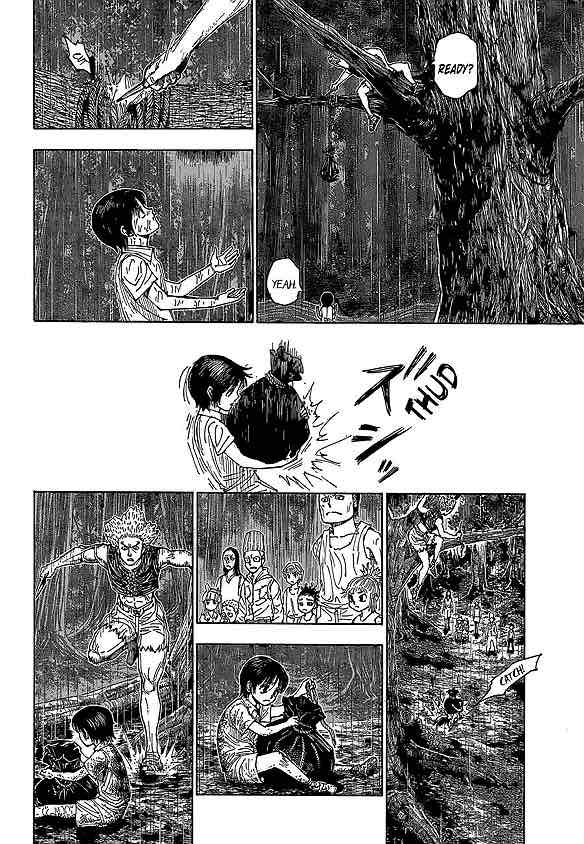
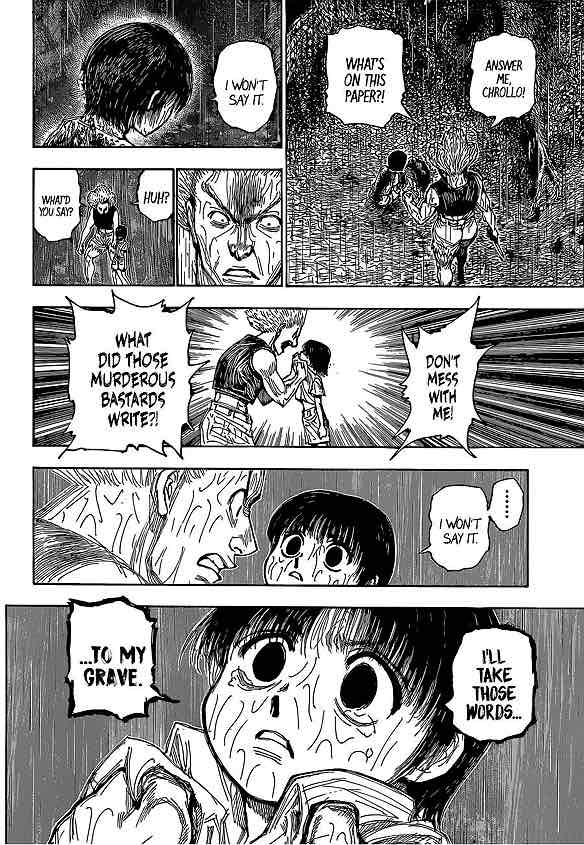
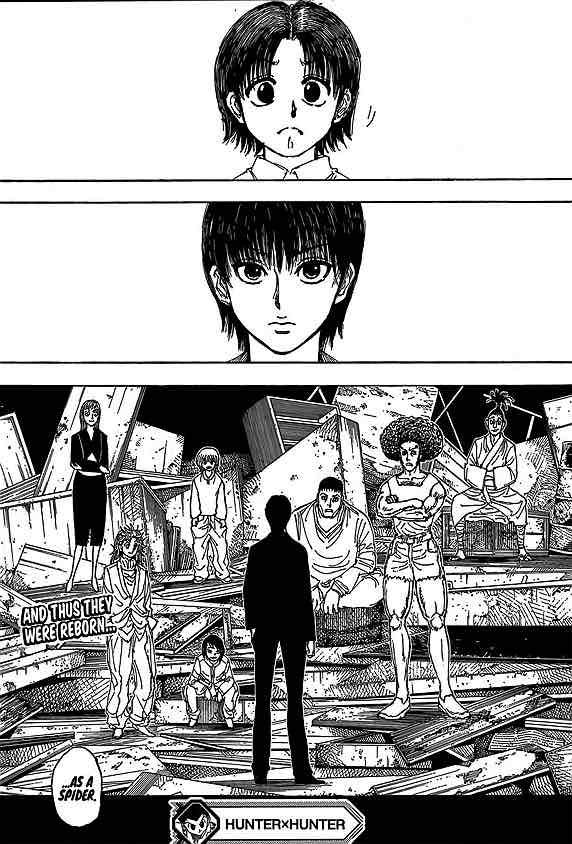


Stefan
December 3, 2022 at 11:55 pmOne theory going around is that the Spider metaphor came about because Chrollo’s plan was effectively to transform Meteor City in a “web” for criminals. They enter the place believing it to be a lawless free-for-all devoid of any consequences, and get caught in the Spider’s web.
My only question is: why? He wants to become a big baddie precisely to steer people from coming to this place and messing with its inhabitants. Why would he want to draw them IN the place, it seems self-contradictory.
Guardian Enzo
December 4, 2022 at 12:04 amWell… I kinda thought the idea was that he wanted to lure the specific people who killed Sarasa. Though obviously what actually happened would be serious overkill if that was the case.
Stefan
December 4, 2022 at 1:53 amI think he the overkill is because Sarasa was only an example highlighting the underlying problem. He wanted to become the big bad villain who scares everyone from messing with Meteor City; in that case, the overkill makes sense.
He also wanted to lure the specific people who killed Sarasa, but I don’t understand why he planned to use Meteor City as the venue, since it’s precisely the place he wanted to protect from criminals, not draw more criminals in.